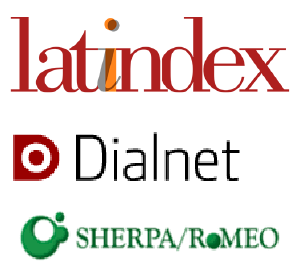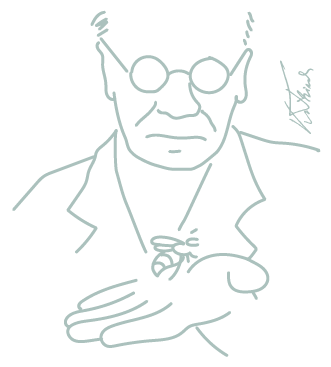ISSN online 2953-3740

The publication of articles in the peer reviewed journal EUNK, establishes a process of permanent knowledge production. This journal promotes the publication of open access digital articles. In addition, EUNK ensures the transmission of scientific knowledge to the scientific and academic community under an ethical commitment . This journal adheres to COPE (Code of Conduct and Best Practices Guidelines for Journals Editors, https://publicationethics.org)
Names and e-mail addresses entered in this journal shall be used exclusively for the purposes stated by this journal and shall not be made available for any other purpose or other person.
1) For Authors
-Authorship and contribution: Authors are those who have made a substantial contribution to the design, data acquisition, analysis, writing, or interpretation of data from the reported study. In addition, the authors as a whole agree to be responsible for all content, accuracy and completeness, including those parts of the study in which the author has not personally participated. The role(s) of all authors should be indicated at the end of the article; it is suggested to adopt the CRediT (https://casrai.org/credit).
The corresponding author is responsible for ensuring that all parts of the work are accurate and all co-authors agree to the presentation. The author is also responsible for sharing suggestions of reviewers and editors with all co-authors the .
Authors should carefully consider the list and order of the authors before submitting their manuscript and provide the definitive list of authors at the time of the original submission. Any addition, deletion or reordering of authors' names in the author list should be done only before the manuscript has been accepted and only if approved by the journal Editor.
To request such change, the Editor must receive the following from the corresponding author: (a) the reason for the change in the authors list and (b) the written confirmation (email, letter) of all authors in agreement to the addition, deletion or reordering. For adding or deleting authors, this includes author confirmation that he/she agrees with his/her addition or deletion.
Only in exceptional circumstances will the Editor consider adding, removing, or reordering authors after the manuscript has been accepted. While Editor is considering the request, the publication of the manuscript will be suspended. If the manuscript has already been published in an online number, any change approved by the Editor will result in a correction.
-Originality: Authors should submit original articles, written by those who declare authorship, specially prepared for publication, and which should not be published in the same or another language, in any print or electronic media, or be under editorial consideration elsewhere. Data must be accurately in the work. An investigation must have enough details, references and citations to allow replicability.
The journal applies procedures to guarantee originality and protect intellectually property. Manuscripts are screened for plagiarism and content similarity verification, in order to avoid unethical behaviour (inadequate or altered citation). Upon receipt of a manuscript, searches are made on the Internet for other works by the authors, title, excerpts from the abstract and results. Reviewers specialists, are asked to repeat this task. Fraudulent or deliberately inaccurate statements constitute unethical and unacceptable behaviour. Authors should not fabricate or manipulate data (including images) to support conclusions. When such practices are identified, the manuscript will be returned to authors without evaluation and without the possibility of resubmission.
Image integrity: Adjustment of images such as brightness, contrast, or color balance will be acceptable, if applied to the entire image. Images must not be altered, enhanced, darkened or, moved.
Eunk will not accept fragmentation of research: if a study is complex, it should be presented in a single paper and not divided into two or more individual reports to increase publication output. If an article has already been published and the authors (or some) submit another work where the fragmentation of results or "salami slicing" is evidenced, the work will be rejected. Manuscripts with "1st part" or similar phrasing in their title or subheadings will not be accepted.
Fundamental errors in published works: When authors discovers an error or inaccuracy in their own published work, ithey should immediately inform the journal´ s editor so as to rectify any mistake (erratum).
-Plagiarism: Authors should avoid extensive transcription of other works or books. If it is strictly necessary, authors are advice to use quotation marks and italicize other author´´ s words along with the corresponding citation. The use of phrases from published works by the same author is considered plagiarism (self-plagiarism), which constitute a violation of copyright laws. When reproducing copyrighted material (texts, images, photographs) or unpublished data belonging to other authors, such content must be indicated in the text and authors must provide proof of permission before their work is accepted by the Editorial board. Authors will be held responsible for failure to fulfil the above-mentioned requirement.
- Conflicts of interest and funding: Authors shall declare any conflict of interest that could be perceived as bias in their work. Disclosure of potential conflict of interest,will be explicitly stated at the end of the manuscript before publication.
2) Ethics for the Editor and Members of the Editorial Board
Editors shall evaluate the research content and merits of manuscripts solely on the basis of rigorous intellectual work without regard to authors' race, gender, sexual orientation, religious beliefs, ethnicity, citizenship or political philosophy. The journal´´ s Editors will also ensure that the peer review process is fair and unbiased appraisal of research quality and suitability by selecting/assigning appropiate peer reviewers.
Authors ´ and Reviewers information, as well as that related to manuscripts submitted to Eunk, will be strictly confidential and treated as such. Editors will inform and apologize for any conflict of interest. To avoid conflicts of interest, editors must take into account funding sources and author affiliation, in order to choose reviewers who are not related with the authors of the manuscript.
3) Ethics for Reviewers
Reviewers will collaborate with the Editor in editorial decisions and are committed to evaluating the manuscript honestly, objectively and critically in order to help authors improve their article. Reviewers must carefully evaluate the intellectual content of the submitted manuscript, including research methodology and procedures, taking into account the same ethical and confidentiality principles applied to editors. Reviewers should inform the Editor of any conflict of interest or inability to review the manuscript timely or indicate lack of suitability or experience to review the manuscript. Reviewers should avoid suggesting citations from their own publications. Reviewers should report suspected plagiarism or ethical non-compliance.


